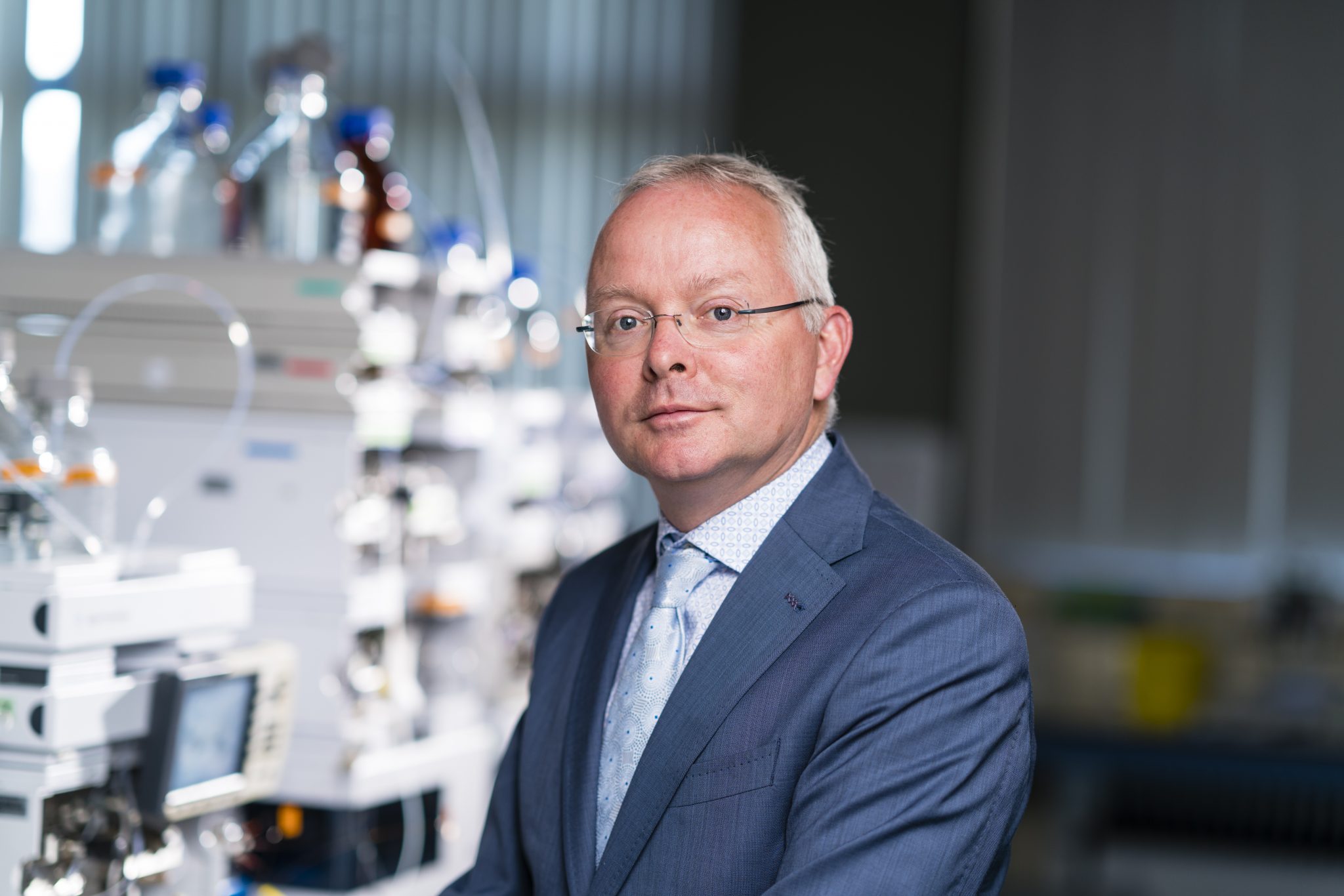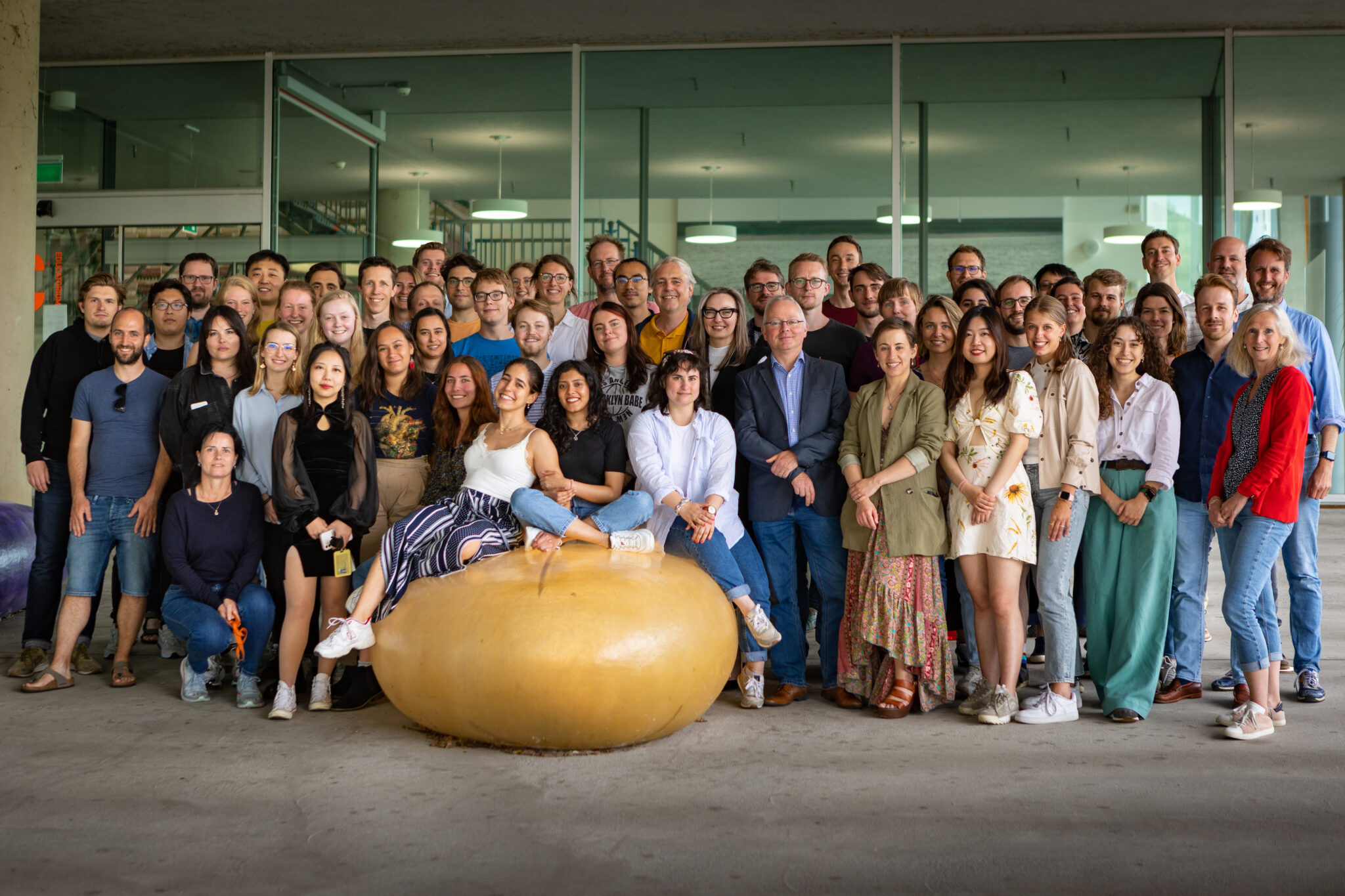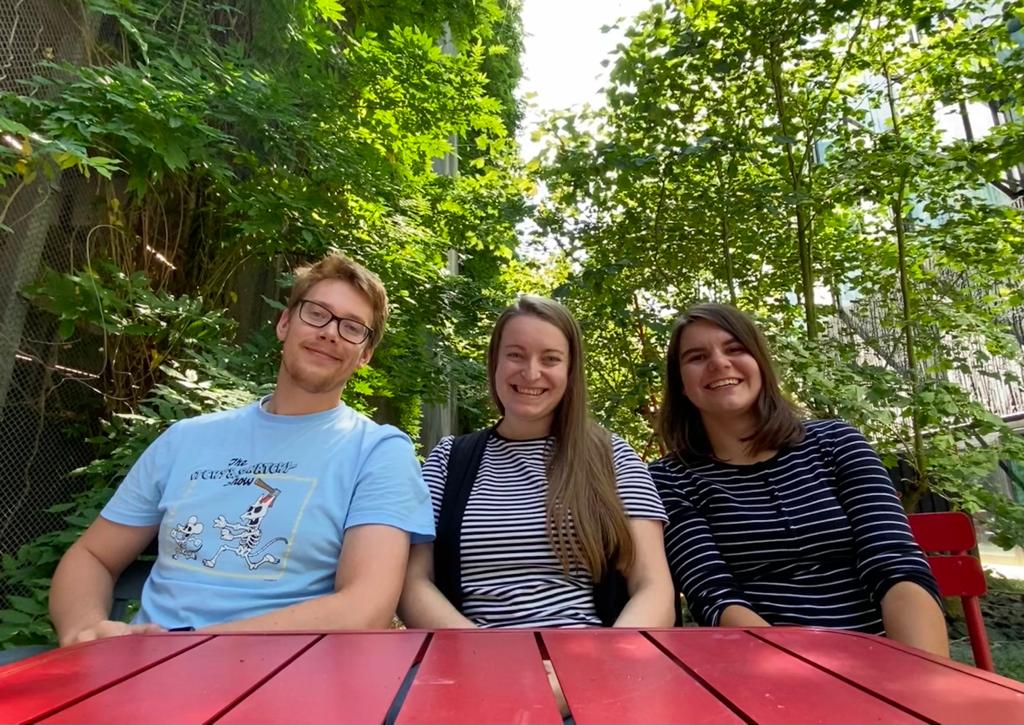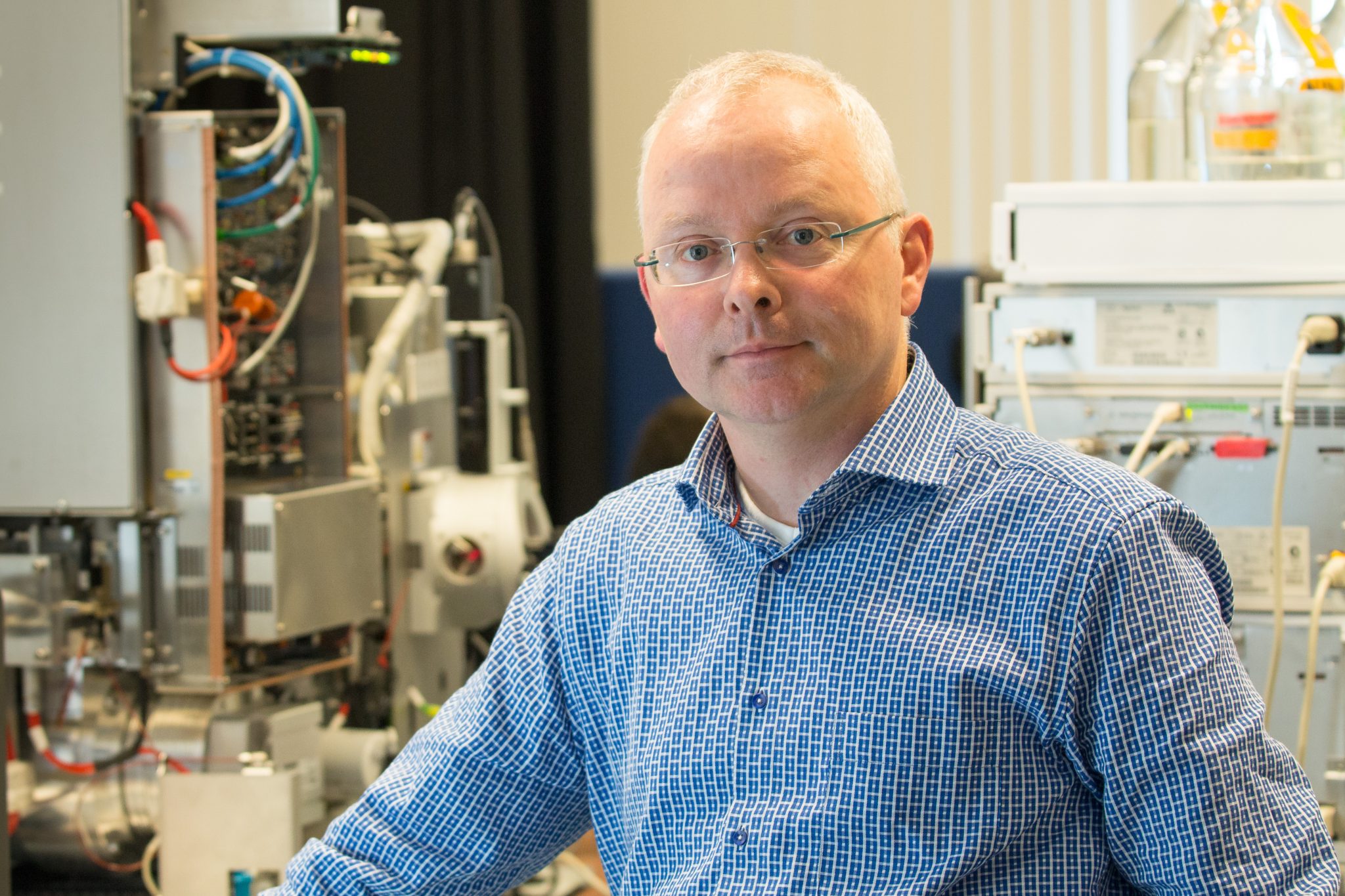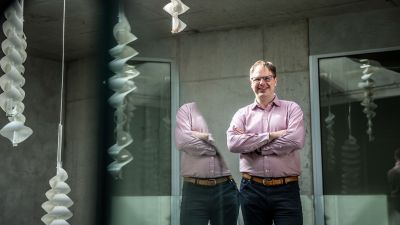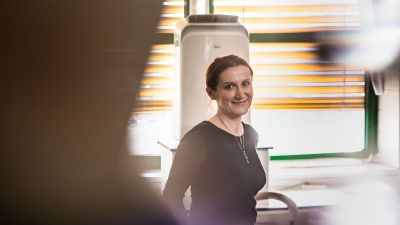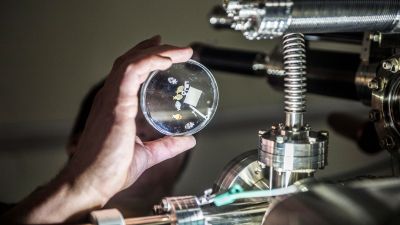“Be a sponge – keep absorbing information from a broad perspective,” says professor Albert Heck from Utrecht University. Heck is internationally recognized as one of the absolute pioneers in the use of mass spectrometry for large-scale protein research (proteomics). He has mentored many students and postdocs, several of them from the Czech Republic.
You are a perfect example of a modern scientist, excelling in both research and science communication. How did you get started? What was your motivation to share your work with a broader audience?
My motivation for sharing science comes from being genuinely enthusiastic about my field of research, which can be quite specialised and complex. However, I believe it's crucial to share this enthusiasm not only with fellow scientists but also with the broader community, including neighbors, younger people and even children. As a scientist studying proteins, I find them fascinating, considering they are prevalent in our bodies and the entire world. My aim is to make more people appreciate the world of proteins by understanding them better.
Regarding my proficiency in science communication, I'm not sure if I am really good. Initially, I found it challenging to effectively convey complex ideas to a broad audience. However, I've learned that collaborating with individuals who are genuinely interested in science and experts in other fields like communication or art, can be incredibly helpful. They can play a crucial role in helping translate my scientific messages into presentations, videos, or social media posts. Working together, we bridge the gap between specialised knowledge and public understanding, making science more accessible and engaging for everyone. That's my motivation and approach to science communication.
I really like the way you connect science and art. That you together with artists try to communicate your research in an innovative way, for example using dance. How did that start?
I generally think that science and art are not so different and both try to make or see something that's really beautiful. In our case, if you see how a living cell works, it's really beautiful. It is as beautiful as seeing a painting of Rembrandt. However, when you look at the painting of Rembrandt or when you look at the cell, it's not only about looking at it, it's also about interpreting. Both science and art tell stories behind what we see.
If you connect with artists who are on that same wavelength as you then it works. In making these dance movies, I was lucky to get connected with a team of young video artists who were really interested in science. And I just told them a story about what I study and what I really like, and then I gave them almost full freedom to make an interpretation. And they came up with ideas, we came up with ideas and then together we made something which is neither just art nor just a scientific publication, but it's something in between.
I quite like the fact that many more people saw that movie than have read my papers and I also feel that quite a few more people took something from that movie. Because I'm not sure if the general public takes a lot from our papers. So I see it as a fun thing to do, which also provides added value making science more accessible.
Is it challenging to find the right balance between scientific accuracy and art?
It is and it isn't. The simple answer is yes, it's difficult. But if you start to think longer about it, you know, we scientists, when we have written a paper or report, we think this is the ground truth and that it will be valid for the next 50 years or so. And then next year, someone else makes a new measurement or a new discovery and comes up with a new interpretation. Even science itself is fact-based understanding. When you move into a more arty presentation of your science, you have to compromise because proteins are not visible by eye and so on. You need to make cartoons that show how they might look, which is close to reality, but not the real reality. So you have to make compromises. But if that means that more people get an idea and an understanding of what you want to say, then I think it's not so difficult to make these compromises.
Do you think that every scientist should communicate their research to the general public?
No, I think the science community should, but every person is different and you should not force every scientist to do science communication. But I think you should value when you have at your institute or in your group people who want to do it. And I think it's also extremely good to collaborate with people who are bridging the world of science and everyday life, who help scientists express their results to the general public in the most effective and engaging way. Some scientists are not good at science communication themselves but even their messages should be communicated.
You are also very active on Twitter. What's your motivation? Do you know how much time you spend on Twitter?
I think my motivation is not so different from many people that are on Twitter. Of course, it costs a bit of time. But I see many benefits. Sometimes I pick up things from Twitter that make me start to read the paper that I otherwise would not have read, or I hear about developments that I otherwise would not have heard about. And it's sort of broadening your network. However, you should also realise there is a bias. You don't reach everyone and not everyone reaches you, but it's just a fun way to keep connected with other scientists and maybe also with beyond science.
I know you really value diversity. Your team consists of many nationalities and types of expertise. Is this multidisciplinary approach the key to success?
The simple answer is yes. My group currently consists of 19 nationalities, several religions and gender classes. It is not the only or mandatory way, but I think for my group and for my science it really helps to have people from different backgrounds from different cultures, scientific expertise or social skills. They get along very well.
And I think when people leave the group, they have learned something in science, but they have also learned lessons in life. And maybe that's even better - a Chinese person learns from an American person and vice-versa or a chemist learns from a biologist and vice versa. This is very inspiring and enriching.
If you stay the whole life in the village where you were born and you only see that, you think that's normal. And I have learned that in the world, everyone thinks that their life is normal. But there are many different normals in the world and everything has its good and bad things. And I must say from my own experience that I have learned most about my own country while traveling abroad. Because you start to learn how your own country looks from the perspective of other countries and other cultures.
How important is networking for scientists and how do you build your own network? Do you have any tips or recommendations?
A good network is crucial. What I've learned over the years is that the personal click is very important and you might have a scientist that may be the perfect fit in expertise, but if you don't like each other, then it's difficult. As a scientist, you may click with people all over the world. It doesn't need to be someone in your department. Science is a global thing, and that's the good thing about it.
What I really like about mass spectrometry is that we sometimes can help other scientists and of course, it makes you happy, but the real benefit for me is free education. Because if I talk to a neuroscientist, I will learn about neurology, if I talk to a physical chemist, I will hear about physical chemistry and so on. When you give something, you always get something back and I think this helps your own development and enriches your research. So I would recommend escaping our own ivory tower and start networking.
Many Czechs have worked in your group. Do you also collaborate with any Czech groups?
Yes, there were many Czech students or postdocs. And it is bad to generalize but I must say that all of them were smart and hardworking. In the last five years, I have been coordinating an European large-scale proteomic program. In this program we try to involve people from many countries, so there are also several Czech groups involved. The program is really nice because we get money to let people move from one lab to another and share information and knowledge. So it doesn't mean that we see each other every day, but we certainly have these connections.
|
The trio of Czechs in Heck's lab • Jan Fiala (left) is a postdoc working on the development and application of mass spectrometry techniques for the study of archaeal organisms living in extreme environments such as hydrothermal vents or the Dead Sea. He received his PhD from the Faculty of Science of Charles University under the supervision of Petr Novák in 2021. • Marta Siborová is a second-year postdoc in Heck's team. She uses cryo-electron microscopy to map interactions between human viruses and antibodies. She studied at Masaryk University in Brno. Her PhD thesis supervisor was structural virologist Pavel Plevka, who is currently also the director of CEITEC. • Tereza Kadavá completed her Master's studies at the Faculty of Science of Charles University under a supervision of Petr Novák last year. As a PhD student in Heck's lab, she uses mass spectrometry-based techniques to study blood serum glycoproteins. |
I read a few interviews with you and in one of them you mentioned that you are proud of watching young people come into your group, get trained, grow and mature. Do you know the statistics? How many scientists have you trained?
It depends. It always has to be nuanced, because who did I train? But just to give you a few numbers, in the 25 years that I've been here, my lab has had over 100 PhD students graduating, about 75 postdocs and of course a lot of master students. We still have a network of alumni and about every five years we try to get everyone back. But they are all over the world now, some of them have remained in academia and are professors now, which I'm proud of, but I'm equally proud of alumni who work in industry or went into teaching.
When people ask me how I manage this group, I typically say I don't. And that it's the group that manages itself. Sometimes you can give a little shift here and a little direction there, but you have to get an atmosphere where people get trained by their buddy next to them and are in turn training other people. So the training is not something I can really put on my personal record, but I'm proud of my group.
I also liked the fact that your next big question is what we can answer with mass spectrometry. Could you be more specific? What's your current next question?
My research has focused on mass spectrometry and you might say 'Hey, that's boring' because that technology has already been around for more than 125 years. But I love it because every five years new things arise that maybe none of us who are the experts in the field had expected, which shows how dynamically and quickly this field is still moving. Things that we never thought that would happen are reality now. That we can study single cells with mass spectrometry, the proteome, the metabolome. For me, as a technology nerd, that's just amazing.
When I started my career, or even 10 years ago, I would have laughed if you had proposed that. I've learned not to care about what is or isn't currently possible. And that's my message also to scientists: don't care. Just have visions of what you want to do and maybe one day it will be possible, and ideally you will have contributed to making this possible.
Do you have any other recommendations for young scientists?
If you're young, you should consider yourself 'a sponge' and you should absorb, absorb, and absorb. Keep a broad perspective, learn about different disciplines. And maybe 20 years later you will really appreciate this knowledge. When you get older your sponge effect becomes weaker and you get stuck in what you were taught or what you believe. And I think staying young is maybe also about remaining such a sponge and being able to absorb things that are out of your comfort zone. So my recommendation is to remain a sponge.
What does your typical work day look like? Do you have any rituals, such as starting the day by reading the newspaper?
No, I think it's a bit boring to tell you the truth. My day starts by checking emails and that takes a lot of time. But I don't see it only as a burden, of course, since half of the emails are also your network and your information.
If I ask my children, they always say, oh, the only thing he does is drink coffee and talk to other people, which is sort of true. And there is never a typical day because every day is different. But what I find most fun is interacting with the students. But I also like to keep up my network with international scientists, and also with people in industry. So especially at this stage of my career my daily work really is keeping the network going, keeping the infrastructure going. From time to time, I have a sabbatical day where I think about where I want to go with the science of the group, and these are the most joyful moments. But as a leader of a group, there are many other duties to deal with, such as people in your lab having personal issues or problems finding housing or getting a visa, getting recommendations, nor should you underestimate teaching, that's also quite a bit of your time and it's important. As a scientist, I find it fun, but you have a lot of different tasks, so I think there's almost no typical day, and it's certainly not a routine.
You're a very passionate scientist, but if you were not a scientist, what would you be?
That's an interesting question. I like nature and I like to run and cycle and I especially like to travel, discovering new places and what people from other nations think but also to learn about myself and my own country. So if I had a free choice, I would be a traveler, I think.
| Professor Albert Heck |
| Albert Heck is a Distinguished Faculty Professor at the Science Faculty of Utrecht University, the Netherlands, and Scientific Director of the Netherlands Proteomics Centre. He studied chemistry at the Vrije Universiteit in Amsterdam and received his PhD in 1993 from the University of Amsterdam. After postdoc positions at Stanford University (US) and the University of Warwick (UK), he was appointed professor at Utrecht University at the age of 33. His group develops and implements innovative mass spectrometric methods for more efficient and detailed characterization of proteins in relation to their biological function, spanning the fields of proteomics, glycoproteomics and structural biology. He has received numerous awards, including the prestigious Spinoza Award of the Netherlands Organization for Scientific Research. He also received the Sir Hans Krebs Medal during the FEBS conference held in Prague in 2018. |


